Abstract:
Learning in communities of practice (CoPs) makes up a significant portion of today's knowledge gain. However, only little technological support is tailored specifically t...Show MoreMetadata
Abstract:
Learning in communities of practice (CoPs) makes up a significant portion of today's knowledge gain. However, only little technological support is tailored specifically toward CoPs and their particular strengths and challenges. Even worse, CoPs often do not possess the resources to host or develop a software ecosystem to support their activities. In this contribution, we describe a decentralized learning infrastructure for community knowledge building. It takes into account the constant change of these communities by providing a lightweight and scalable infrastructure, without the need for central coordination or facilitation. As a real use case, we implement a question-based dialog application for inquiry-based learning and ignorance modeling with our infrastructure. Additionally, we explore the possibility of using social bots to connect the services provided by the decentralized infrastructure to communication tools already present in most communities (e.g., chat platforms). Following a design science approach, we describe a multistep evaluation of both the infrastructure and application, together with the improvements made to the resulting artifacts of each step. Our results indicate the relevance of our approach, which may serve as an example of how decentralized learning infrastructures for learning outside of formal settings can be applied by CoPs for knowledge building.
Published in: IEEE Transactions on Learning Technologies ( Volume: 13, Issue: 3, 01 July-Sept. 2020)
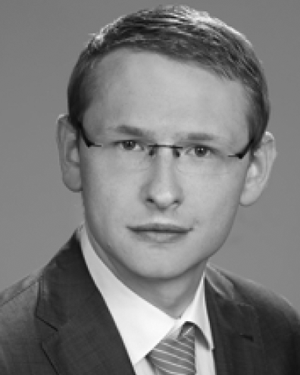
Department of Databases and Information Systems, RWTH Aachen University, Aachen, Germany
Peter de Lange received the M.Sc. degree in computer science from RWTH Aachen University, Aachen, Germany, in 2015, where he is currently working toward the Ph.D. degree in computer science with the Department of Databases and Information Systems.
Since 2015, he has been a Research Assistant with the Advanced Community Information Systems Group, Information Systems and Databases Chair, RWTH Aachen University. He has been i...Show More
Peter de Lange received the M.Sc. degree in computer science from RWTH Aachen University, Aachen, Germany, in 2015, where he is currently working toward the Ph.D. degree in computer science with the Department of Databases and Information Systems.
Since 2015, he has been a Research Assistant with the Advanced Community Information Systems Group, Information Systems and Databases Chair, RWTH Aachen University. He has been i...View more
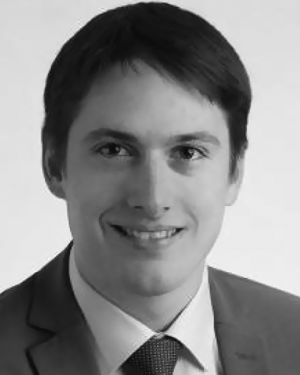
Research Studios Austria Forschungsgesellschaft, Salzburg, Austria
Johannes Kepler University Linz, Linz, Austria
Bernhard Göschlberger received the M.Sc. degree in software engineering from the University of Applied Sciences Upper Austria, Wels, Austria, in 2014. He is currently working toward the Ph.D. degree in computer science with the Institute of Telecooperation, Johannes Kepler University Linz, Linz, Austia.
He is the Deputy Studio Director of the Research Studio Data Science and a Team Leader of the MobileKnowledgeLab, Researc...Show More
Bernhard Göschlberger received the M.Sc. degree in software engineering from the University of Applied Sciences Upper Austria, Wels, Austria, in 2014. He is currently working toward the Ph.D. degree in computer science with the Institute of Telecooperation, Johannes Kepler University Linz, Linz, Austia.
He is the Deputy Studio Director of the Research Studio Data Science and a Team Leader of the MobileKnowledgeLab, Researc...View more
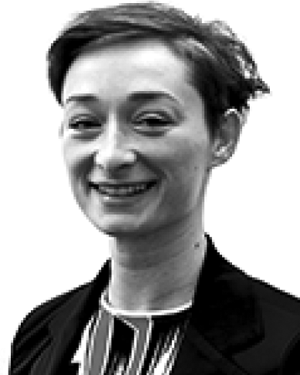
Open University, Milton Keynes, U.K.
Tracie Farrell received the Ph.D. degree in technology enhanced learning from Open University, U.K., in 2018, and the M.Sc. degree in intercultural communication from the Alice Salomon University of Applied Sciences, Berlin, in 2007.
She is currently a Research Associate with the Web Science Research Group, Knowledge Media Institute, Open University. Her current research interests include the impact of new technologies on ...Show More
Tracie Farrell received the Ph.D. degree in technology enhanced learning from Open University, U.K., in 2018, and the M.Sc. degree in intercultural communication from the Alice Salomon University of Applied Sciences, Berlin, in 2007.
She is currently a Research Associate with the Web Science Research Group, Knowledge Media Institute, Open University. Her current research interests include the impact of new technologies on ...View more
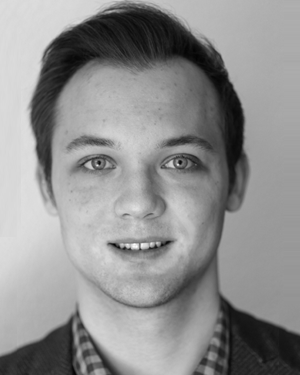
Department of Databases and Information Systems, RWTH Aachen University, Aachen, Germany
Alexander Tobias Neumann received the M.Sc. degree in computer science from RWTH Aachen University, Aachen, Germany, in 2018, where he is currently working toward the Ph.D. degree in computer science with the Department of Databases and Information Systems.
Since 2018, he has been a Research Assistant with the Advanced Community Information Systems Group, Information Systems and Databases Chair, RWTH Aachen University. His...Show More
Alexander Tobias Neumann received the M.Sc. degree in computer science from RWTH Aachen University, Aachen, Germany, in 2018, where he is currently working toward the Ph.D. degree in computer science with the Department of Databases and Information Systems.
Since 2018, he has been a Research Assistant with the Advanced Community Information Systems Group, Information Systems and Databases Chair, RWTH Aachen University. His...View more
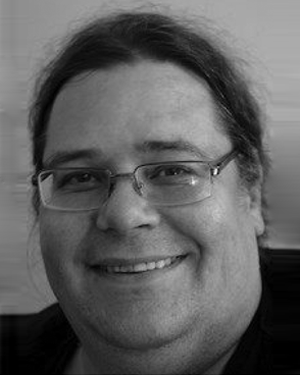
Department of Databases and Information Systems, RWTH Aachen University, Aachen, Germany
Ralf Klamma received the diploma, doctoral, and Habilitation degrees in computer science from RWTH Aachen University, Aachen, Germany, in 1995, 2000, and 2010, repectively.
He leads the Advanced Community Information Systems research group, Information Systems Chair, RWTH Aachen University. He is known for his work in major EU projects for technology enhanced learning (PROLEARN, GALA, ROLE, Learning Layers, TELMAP, Tellnet...Show More
Ralf Klamma received the diploma, doctoral, and Habilitation degrees in computer science from RWTH Aachen University, Aachen, Germany, in 1995, 2000, and 2010, repectively.
He leads the Advanced Community Information Systems research group, Information Systems Chair, RWTH Aachen University. He is known for his work in major EU projects for technology enhanced learning (PROLEARN, GALA, ROLE, Learning Layers, TELMAP, Tellnet...View more

Department of Databases and Information Systems, RWTH Aachen University, Aachen, Germany
Peter de Lange received the M.Sc. degree in computer science from RWTH Aachen University, Aachen, Germany, in 2015, where he is currently working toward the Ph.D. degree in computer science with the Department of Databases and Information Systems.
Since 2015, he has been a Research Assistant with the Advanced Community Information Systems Group, Information Systems and Databases Chair, RWTH Aachen University. He has been involved in both German and European projects in technology enhanced learning, as well as research and teaching. His research interests include web engineering, community information systems, learning analytics, and peer-to-peer infrastructures.
Peter de Lange received the M.Sc. degree in computer science from RWTH Aachen University, Aachen, Germany, in 2015, where he is currently working toward the Ph.D. degree in computer science with the Department of Databases and Information Systems.
Since 2015, he has been a Research Assistant with the Advanced Community Information Systems Group, Information Systems and Databases Chair, RWTH Aachen University. He has been involved in both German and European projects in technology enhanced learning, as well as research and teaching. His research interests include web engineering, community information systems, learning analytics, and peer-to-peer infrastructures.View more

Research Studios Austria Forschungsgesellschaft, Salzburg, Austria
Johannes Kepler University Linz, Linz, Austria
Bernhard Göschlberger received the M.Sc. degree in software engineering from the University of Applied Sciences Upper Austria, Wels, Austria, in 2014. He is currently working toward the Ph.D. degree in computer science with the Institute of Telecooperation, Johannes Kepler University Linz, Linz, Austia.
He is the Deputy Studio Director of the Research Studio Data Science and a Team Leader of the MobileKnowledgeLab, Research Studios Austria Forschungsgesellschaft, Salzburg, Austria.
Bernhard Göschlberger received the M.Sc. degree in software engineering from the University of Applied Sciences Upper Austria, Wels, Austria, in 2014. He is currently working toward the Ph.D. degree in computer science with the Institute of Telecooperation, Johannes Kepler University Linz, Linz, Austia.
He is the Deputy Studio Director of the Research Studio Data Science and a Team Leader of the MobileKnowledgeLab, Research Studios Austria Forschungsgesellschaft, Salzburg, Austria.View more

Open University, Milton Keynes, U.K.
Tracie Farrell received the Ph.D. degree in technology enhanced learning from Open University, U.K., in 2018, and the M.Sc. degree in intercultural communication from the Alice Salomon University of Applied Sciences, Berlin, in 2007.
She is currently a Research Associate with the Web Science Research Group, Knowledge Media Institute, Open University. Her current research interests include the impact of new technologies on society and culture, in particular, the opportunities and challenges presented by communication and interaction at scale.
Tracie Farrell received the Ph.D. degree in technology enhanced learning from Open University, U.K., in 2018, and the M.Sc. degree in intercultural communication from the Alice Salomon University of Applied Sciences, Berlin, in 2007.
She is currently a Research Associate with the Web Science Research Group, Knowledge Media Institute, Open University. Her current research interests include the impact of new technologies on society and culture, in particular, the opportunities and challenges presented by communication and interaction at scale.View more

Department of Databases and Information Systems, RWTH Aachen University, Aachen, Germany
Alexander Tobias Neumann received the M.Sc. degree in computer science from RWTH Aachen University, Aachen, Germany, in 2018, where he is currently working toward the Ph.D. degree in computer science with the Department of Databases and Information Systems.
Since 2018, he has been a Research Assistant with the Advanced Community Information Systems Group, Information Systems and Databases Chair, RWTH Aachen University. His current research focuses on scaling up digital mentoring processes.
Alexander Tobias Neumann received the M.Sc. degree in computer science from RWTH Aachen University, Aachen, Germany, in 2018, where he is currently working toward the Ph.D. degree in computer science with the Department of Databases and Information Systems.
Since 2018, he has been a Research Assistant with the Advanced Community Information Systems Group, Information Systems and Databases Chair, RWTH Aachen University. His current research focuses on scaling up digital mentoring processes.View more

Department of Databases and Information Systems, RWTH Aachen University, Aachen, Germany
Ralf Klamma received the diploma, doctoral, and Habilitation degrees in computer science from RWTH Aachen University, Aachen, Germany, in 1995, 2000, and 2010, repectively.
He leads the Advanced Community Information Systems research group, Information Systems Chair, RWTH Aachen University. He is known for his work in major EU projects for technology enhanced learning (PROLEARN, GALA, ROLE, Learning Layers, TELMAP, Tellnet, CUELC, SAGE, BOOST, VIRTUS, and WEKIT). He organized doctoral summer schools and conferences in technology enhanced learning and social network analysis. He has authored or coauthored more than 150 scientific papers. He is on the editorial board of Social Network Analysis and Mining and IxD&A. His research interests include community information systems, serious games, augmented reality, web engineering, social network analysis, requirements engineering, and technology enhanced learning.
Ralf Klamma received the diploma, doctoral, and Habilitation degrees in computer science from RWTH Aachen University, Aachen, Germany, in 1995, 2000, and 2010, repectively.
He leads the Advanced Community Information Systems research group, Information Systems Chair, RWTH Aachen University. He is known for his work in major EU projects for technology enhanced learning (PROLEARN, GALA, ROLE, Learning Layers, TELMAP, Tellnet, CUELC, SAGE, BOOST, VIRTUS, and WEKIT). He organized doctoral summer schools and conferences in technology enhanced learning and social network analysis. He has authored or coauthored more than 150 scientific papers. He is on the editorial board of Social Network Analysis and Mining and IxD&A. His research interests include community information systems, serious games, augmented reality, web engineering, social network analysis, requirements engineering, and technology enhanced learning.View more


